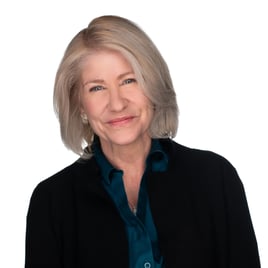As a firm, we strongly support the notion that diverse leadership is critical for organizational success. A discrepancy between the prevalence of women in the pipeline and absence of equal representation in advanced leadership roles, highlights the need for organizations to correct the strategic, structural, and cultural components which impact diversity, inclusion, and equity.
In Honor of Women’s History month, we are proud to feature interviews with TLD Group faculty where we explore their perspectives on female leadership and their experiences coaching female talent.
Interview with TLD Group Executive Coach- Ruth Wageman
What female leader inspires you and why?
Jacinda Ardern. Her results speak to me: She led her country through a pandemic with fewer than 30 deaths. She is humane, and willing to be transparent about her humanity. And she has no problem turning to experts for input and creating a place where different perspectives contribute to a shared aspiration.
People often wonder about the differences between how men and women lead. What are your thoughts on that?
If you read Anita Williams Woolley’s work, one clear message is that women are better at developing collective intelligence. Women are better able to build teams that are more than the sum of their parts: able to identify and use the talent and experience that individuals bring to the work.
What do you think are the most significant barriers for female leaders attempting to advance and grow their careers to the top tier of an organization?
The balance beam we have to walk. Women are more transformational leaders than are men, more positive in how we lead others, more purpose-focused. In spite of that, women are often not perceived as great leaders. The balance beam is this: Women, unlike men, are expected to be seen as BOTH warm and competent—but if you’re too competent you are not seen as warm, and if you’re too warm, you’re not seen as competent. This requirement of women operates at every level, making promotion less likely for women on every step of the ladder.
As an executive coach, what trends have you seen in coaching women in leadership positions (or roles)? What is a leadership lesson that you have learned through your work with female leaders?
One trend in executive coaching is an increasing emphasis on coaching teams of people rather than individuals. And that relates to the lesson I have learned working with female leaders: Some of the women who have inspired me most have a very flexible repertoire of leadership practices, not one inflexible style. They are well able to be authoritative in building a shared purpose, what mountain we are going to climb together, but also leaving lots of room for the team’s participation in figuring out how to get there. It results in real alignment and real energy and motivation for the team at the same time.
What advice would you give to women with aspirations of reaching executive leadership roles?
Keep doing what makes us so capable: build collaborations and work effectively with others including working with other women to change the typical norms and practices in the workplace. For example, the more objective performance evaluations are, the more credit women get for their accomplishments. The less there is a norm of seeing “work long hours” as a way of measuring people’s commitment to the job and the enterprise, promote and reinforce productive work practices that accomplish meaningful outcomes. And make sure that female colleagues in the workplace are not the only women in their teams. Numbers matter for changing the success rates of women.

Ruth Wageman
Ruth Wageman, a TLD Group Advisory Board member, is one of the foremost scholars studying and working with teams, especially leadership teams. Ruth especially focuses on teams whose purpose is to solve complex problems and lead system transformation. She builds collaborative leadership capacity within and across organizations, and works with women leaders who are catalyzing change toward the Sustainable Development Goals. Ruth has been a professor at Columbia, Dartmouth, and Harvard, where she has led many original research programs about teams and leadership.



